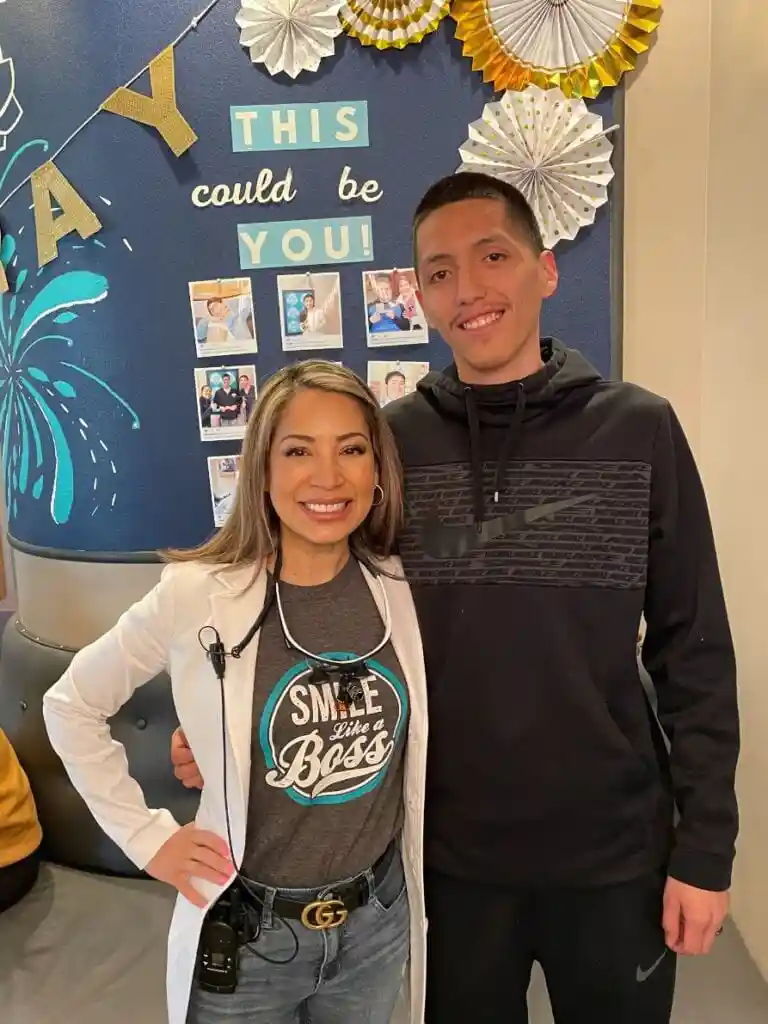Orthodontic treatment with braces can be uncomfortable occasionally, but most often, the “hurt” reported by a patient is more of a feeling of pressure and can be more accurately described as “discomfort.” The best way to avoid or reduce any discomfort that may be associated with braces is to keep a conscientious care schedule. Dr. Ana Castilla of Castilla Orthodontics knows that a patient who is consistently experiencing pain or discomfort associated with their braces near Monmouth, OR should be examined for any problems with their orthodontic appliances.
What is this feeling?
The mouth is a very sensitive part of the body. Adding new brackets, wires, and other appliances to the teeth may cause an orthodontic patient some occasional discomfort. But most people don’t understand or even care why they are feeling this way. Discomfort associated with orthodontic treatment with braces may be caused by a variety of factors:
- Irritation inside the mouth: Your mouth will need a few days to adjust once your new braces have been fitted and your teeth and gums are interacting with your appliances for the first time. These new additions to your teeth require your mouth to get comfortable with their presence. However, once the two are comfortable, the irritation will ease over time.
- Broken bracket: Your braces are constantly working. Because of this, there is always a possibility that something can break. Broken brackets should be expected, and they happen to almost everyone at least once during treatment. This can cause some pain and irritation because the broken bracket may poke at or tear the delicate surfaces in the mouth (especially if you have traditional metal braces). If this occurs, make an appointment with Dr. Ana Castilla and Castilla Orthodontics as soon as possible to fix the problem and make sure no further problems or pain occurs.
- Shifting of teeth: Braces shift your teeth to give you the healthy, picture-perfect smile you've always dreamed of. It’s important to know that the shifting of the teeth is what causes the most pain when it comes to braces. When your braces are tightened, they are working harder to align your teeth and essentially changing your teeth’s position in your mouth.
How do I keep my braces comfortable?
To help you avoid any discomfort you may experience during your course of treatment with braces:
- Avoid hard foods. Dr. Ana Castilla says that hard foods should be avoided, especially after an adjustment appointment. The extra effort to chew these foods may cause or exacerbate any discomfort the patient may already feel. When your braces hurt, stick to soft foods such as pasta, mashed potatoes, yogurt, bananas, etc.
- Take over-the-counter or doctor-prescribed medication. When your teeth are hurting because of braces, Dr. Ana Castilla recommends taking an over-the-counter medicine that to lessen any pain. Medicines such as Tylenol, Advil, or Aleve can help ease the pain until your teeth and gums get used to their new positioning.
Braces may hurt, at least initially, because of how they work inside the mouth. The result of orthodontic treatment with braces, however, is a mouth of straight, functional, and healthy teeth and gums.
For more information about why braces may hurt during treatment or to make an appointment with Dr. Ana Castilla and Castilla Orthodontics near Monmouth, OR, call: 503-399-0721



